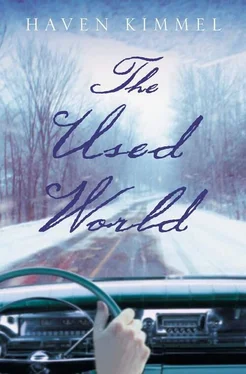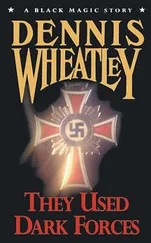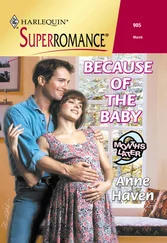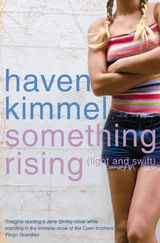Until five years ago Rebekah had thought it all perfectly normal, what went on in that barn with her Granddad Elder, her child mother, the members of the fugitive group. It was Worship as they Worshiped. Of course there would be no Children of the Blood without blood, there would be no life, there would be no eternity. The barn was their Temple, and its altar was stained, as had been all the altars of the seven tribes of Israel. And her father riding his great horse Michael over miles of snow-blanketed fields to claim Ruthie as his own—that had sounded normal, too. Ruth had had no say in the matter, wouldn’t have dreamed of making any claim to her life or liberty. She’d told Rebekah at the end, lying in the hospital bed the Mission had rented and set up in her bedroom, that although she couldn’t say she’d loved Vernon at seventeen, there had been something in the cruel set of his jaw that had thrilled her and made her want to go away with him. So she’d been willing, in her way, then he took her and married her, and it hadn’t been her family or her childhood she’d mourned, it had been her girlfriends in the church, whom Ruthie had taken for granted, considered permanent. They’d never been together as a group again, never walked across a field or gathered around a porch swing, never spent the night in the same bed or talked for hours about nothing, chattering like magpies, as the men used to say. All those girls were married off eventually, scattered to the winds, kept behind closed doors.
Rebekah hadn’t worn boots to work, and so was forced to make her way down the sidewalk in mincing steps, reaching out for trees. She imagined someone watched her do this. Hazel’s voice suddenly entered her head, saying, Oh look, a little redheaded stepchild has escaped from under the porch. Rebekah laughed aloud, lost her footing, righted herself. She could just see, in front of the screen door, a bag from Parker’s Supermarket. When she reached it, she looked inside before picking it up, but it was just what it appeared to be. Who would have done such a thing? Who would have thought of her, now that she’d lost her cousins and all her extended family, the church she’d grown up in, and the love of her father?
The front door opened into a sitting room that contained a piano no one had played since her mother died, but which Vernon had tuned once a year because that’s what one did: tune the piano. The walls were painted pale green and decorated with the acceptable notions: family pictures, a print of Jesus knocking on the door—everyone knew the image of Him knocking on the door and awaiting admittance. Jesus knocks, was what the print was trying to say, He doesn’t just walk in and help Himself to your old mess. Above the piano was a counted-cross-stitch sampler Ruthie had made that read JESUS IS THE SONG IN MY HEART. The same could be said of everything in the parlor: the bench on which no one sat, the piano no one played, the two wing chairs gathered around the little table on which Ruth had placed her knickknacks and doilies—all of these things were somehow connected to Jesus. It was a wonder to consider, the experiment to make Jesus everything, the effort it contained.
Rebekah unloaded the groceries on the butcher block table in the kitchen as if compiling the clues to a mystery. Milk, eggs, bread, orange juice—that could be anyone. But this French cheese, a bar of bittersweet chocolate, buttermilk bath salts in what was supposed to look like an antique milk jug? And all this fruit: oranges, grapes, apples, as if it were a different season altogether. For a single fluttery moment she thought Peter must have left it, he must have been worried about her, and then she saw the note: For Rebekah, a cold night. Claudia’s handwriting.
The oranges looked so good she decided to eat one right away—she would puzzle over Claudia’s gesture later—but then saw again the bath salts, so she carried them both into the bathroom, ran hot water. She took off her clothes without looking in the mirror, as her mother had taught her, poured part of the milk container into the tub. The salt didn’t smell like buttermilk (thank goodness) but it was that color, and the water became creamy, slightly foamy. Rebekah climbed in, surprised by the silky feeling of the water, and leaned back. The water lapped over her, rose and fell as she breathed, leaving a sheen of sweet-smelling oil on her skin. Rebekah closed her eyes and thought of Peter; he had glanced at Hazel and she saw his face again, everything around and behind him gone dark in her memory. She focused on nothing but the color of his skin and the shape of his mouth and the length of his eyelashes. But she couldn’t hold on to the image; she kept seeing Claudia’s handwriting, the span of Claudia’s hand on the glass countertop of the Used World. Span. It was a biblical word for time, Rebekah thought. The smell of the orange rose up in the heat of the room. Water continued to pour from the tap as she claimed the orange from the countertop, thrust her thumb under the skin around the navel. She pulled off large sections of peel and dropped them in the water, where they floated, riding the crests of the small waves around her body. She hummed a bit of Artie Shaw’s “My Heart Stood Still” as she peeled the orange clean, then pulled it apart harder than she meant to, not bothering to divide it into neat sections, and ate the whole thing in quick, big bites.
SNOWPLOWS HAD PARTED the streets of Jonah like a solid white sea. Claudia drove carefully after the scare with the man in the turn lane the night before. Each season in Indiana carried its own near miss, she concluded, remembering a moment last summer when she’d taken an exit ramp onto the highway. She had been holding tight to the inside curve, then decided—for no reason she could discern—to move toward the outside. At the very end of the curve, just before the ramp opened up onto four lanes, there was a beagle, trotting along happily, following a scent and wagging his tail. Claudia most certainly would have hit him, had she stayed her course.
Keeping her eyes on the street ahead, on the intrepid Midwestern holiday shoppers out in full force, Claudia reached over and lifted the front cover of the book Hazel had lent her, A Prayer for Owen Meany, making sure the photograph was still there. It was. She had checked four times since leaving the house, a gesture that now struck her as compulsive; although it was, she supposed, in the nature of a photograph to slip out of a book, in the same way it is somewhere in the nature of glass to shatter.
The prior evening, after surviving the snowstorm and the drive home, Claudia had taken the book to read in bed. The wind was slapping tree branches against her bedroom window, and in the silence of her old farmhouse she experienced the weather as another facet of her nightly dread. She was too tired to read. She closed the novel and reached up to turn off her reading light, and a photograph fluttered out of the middle of the book.
The picture seemed to have been taken sometime in the sixties—all the colors had been muted by the orange pall that marked that decade’s snapshots. Two young women were in the back of a pickup truck. One was sitting on the lowered tailgate, her bare legs crossed at the knee. She was wearing shorts and a halter top, white or pale yellow. Her hair was in a ponytail and her sunglasses were pushed up on her head. There was something familiar about her. The other was standing behind her friend, her legs about a foot apart, in a short-sleeved shirt with buttons. The shirttails had been tied around her midriff, showing off her small waist and tan. Her hair was loose and curly, chin length, streaked with light. Her arms were resting on her friend’s shoulders, her hands lightly clasped, and the sitting girl had reached up, her right arm across her chest, to lay her own hand over her friend’s.
Читать дальше












